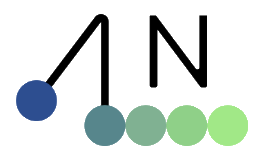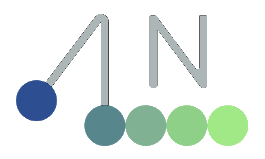newton.CollisionPipeline#
- class newton.CollisionPipeline(shape_count, particle_count, shape_pairs_filtered, rigid_contact_max=None, rigid_contact_max_per_pair=None, soft_contact_max=None, soft_contact_margin=0.01, edge_sdf_iter=10, requires_grad=False, device=None)[source]#
Bases:
objectCollisionPipeline manages collision detection and contact generation for a simulation.
This class is responsible for allocating and managing buffers for collision detection, generating rigid and soft contacts between shapes and particles, and providing an interface for running the collision pipeline on a given simulation state.
- classmethod from_model(model, rigid_contact_max_per_pair=None, soft_contact_max=None, soft_contact_margin=0.01, edge_sdf_iter=10, requires_grad=None)#
Create a CollisionPipeline instance from a Model.
- Parameters:
model (Model) – The simulation model.
rigid_contact_max_per_pair (int | None, optional) – Maximum number of contact points per shape pair. If None, uses
newton.Model.rigid_contact_maxand sets per-pair to 0 (which indicates no limit).soft_contact_max (int | None, optional) – Maximum number of soft contacts to allocate.
soft_contact_margin (float, optional) – Margin for soft contact generation. Defaults to 0.01.
edge_sdf_iter (int, optional) – Number of iterations for edge SDF collision. Defaults to 10.
requires_grad (bool | None, optional) – Whether to enable gradient computation. If None, uses model.requires_grad.
- Returns:
The constructed collision pipeline.
- Return type:
Note
Contact margins for rigid contacts are read from
model.shape_contact_marginarray.
- __init__(shape_count, particle_count, shape_pairs_filtered, rigid_contact_max=None, rigid_contact_max_per_pair=None, soft_contact_max=None, soft_contact_margin=0.01, edge_sdf_iter=10, requires_grad=False, device=None)#
Initialize the CollisionPipeline.
- Parameters:
shape_count (int) – Number of shapes in the simulation.
particle_count (int) – Number of particles in the simulation.
shape_pairs_filtered (wp.array) – Array of filtered shape pairs to consider for collision.
rigid_contact_max (int | None, optional) – Maximum number of rigid contacts to allocate. If None, computed as shape_pairs_max * rigid_contact_max_per_pair.
rigid_contact_max_per_pair (int | None, optional) – Maximum number of contact points per shape pair. If None or <= 0, no limit is applied.
soft_contact_max (int | None, optional) – Maximum number of soft contacts to allocate. If None, computed as shape_count * particle_count.
soft_contact_margin (float, optional) – Margin for soft contact generation. Defaults to 0.01.
edge_sdf_iter (int, optional) – Number of iterations for edge SDF collision. Defaults to 10.
requires_grad (bool, optional) – Whether to enable gradient computation. Defaults to False.
device (Devicelike, optional) – The device on which to allocate arrays and perform computation.
Note
Contact margins for rigid contacts are now controlled per-shape via
model.shape_contact_margin.
- collide(model, state)#
Run the collision pipeline for the given model and state, generating contacts.
This method allocates or clears the contact buffer as needed, then generates soft and rigid contacts using the current simulation state.
- property device#
Returns the device on which the collision pipeline’s buffers are allocated.
- Returns:
The device associated with the pipeline’s buffers.

